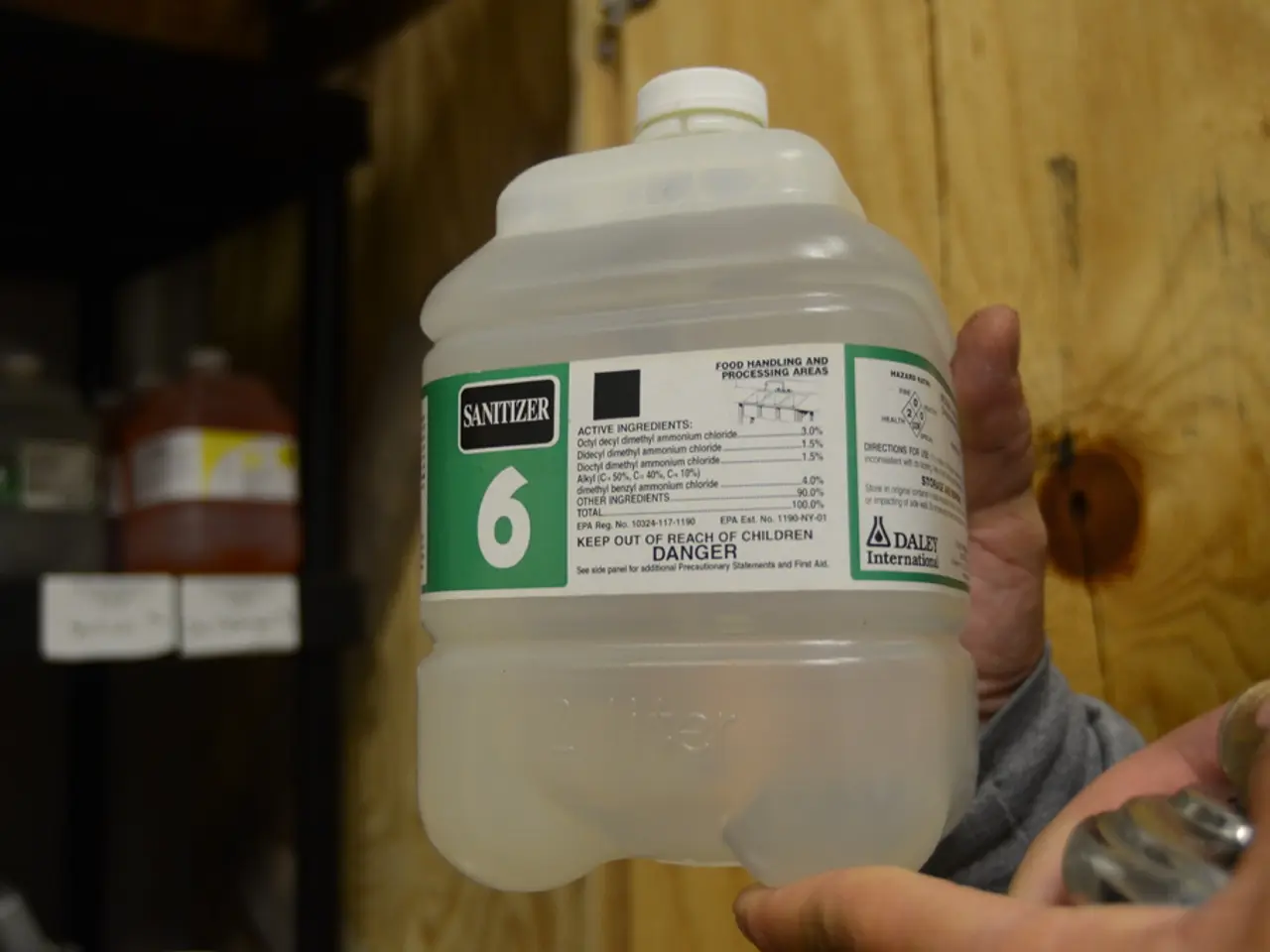Infection predominantly stems from norovirus.
In the face of the highly contagious Norovirus, which is a common cause of vomiting and diarrhea, it's crucial to adopt strict hygiene practices to prevent its spread within households and shared living environments. Here are some key measures to follow to ensure a clean and safe living space.
Firstly, frequent and thorough handwashing is essential. Wash your hands with soap and warm water for at least 20 seconds, especially after using the toilet, changing diapers, before eating, preparing food, and after contact with an infected person. Hand sanitizer is not effective against Norovirus, so rely on soap and water.
Secondly, avoid sharing personal items such as plates, cups, utensils, or towels with someone who is infected to reduce transmission. Keep persons with Norovirus symptoms away from close contact with others and do not allow them to prepare food for at least 48 hours after symptoms resolve.
Thirdly, regularly clean and disinfect surfaces. Frequently touched surfaces such as doorknobs, light switches, countertops, and bathroom fixtures should be cleaned regularly. After any vomiting or diarrhea episode, clean the area immediately using a chlorine bleach solution or an EPA-approved disinfectant effective against Norovirus. Wear gloves and use disposable towels for cleaning, disposing of waste properly.
Practice safe food handling by washing fruits and vegetables thoroughly before eating, cooking shellfish and other foods thoroughly, and maintaining good kitchen hygiene to avoid foodborne transmission.
Laundry handling is also important. Wash contaminated clothing or bedding thoroughly and dispose of trash carefully to avoid spread.
In terms of rehydration during a Norovirus infection, water, teas, and clear soups are recommended. However, avoid naturally cloudy apple juice due to its laxative effect. Salt sticks can be eaten, but they don't contain much salt for rehydration purposes.
Gradually approach food again with light meals like oatmeal, zwieback, or toast, avoiding fatty foods. Cola can be consumed occasionally, but relying solely on it is not recommended due to its high sugar content.
After 48 hours of no fever, diarrhea, or vomiting, a person can assume they are no longer contagious, but thorough hygiene around the toilet should still be practiced. Remember, these combined measures are the most effective way to reduce Norovirus spread within households and shared living environments.
[1] Centers for Disease Control and Prevention. (2021). Norovirus: Causes.
In the realm of workplace-wellness, discussions on health-and-wellness often extend to mental-health, skin-care, fitness-and-exercise, and even chronic-diseases like chronic-kidney-disease. For instance, radio programs can discuss therapies-and-treatments for chronic-kidney-disease, such as dialysis or medication, and strategies for improved nutrition, like incorporating CBD oil into meals as a potential supplement.
In the context of skin-care, handwashing regularly with soap and warm water for at least 20 seconds is a crucial practice, especially during medical-conditions like the Norovirus. This is because proper hygiene prevents the spread of viruses and bacteria, ensuring a clean and safe living space.
The Norovirus, a common cause of vomiting and diarrhea, has led to discussions on safe food handling. This includes washing fruits and vegetables thoroughly, cooking shellfish and other foods thoroughly, and maintaining good kitchen hygiene to avoid foodborne transmission.
In terms of medicare coverage, it's essential to understand that treatment for Norovirus, such as hydration with water, teas, and clear soups, may not be covered, although other health-related expenses might be.
After 48 hours of no fever, diarrhea, or vomiting, a person can assume they are no longer contagious. However, it's important to continue practicing thorough hygiene around the toilet and maintain a healthy balance of nutrition, mental health, fitness, and skin care to ensure overall wellness.




